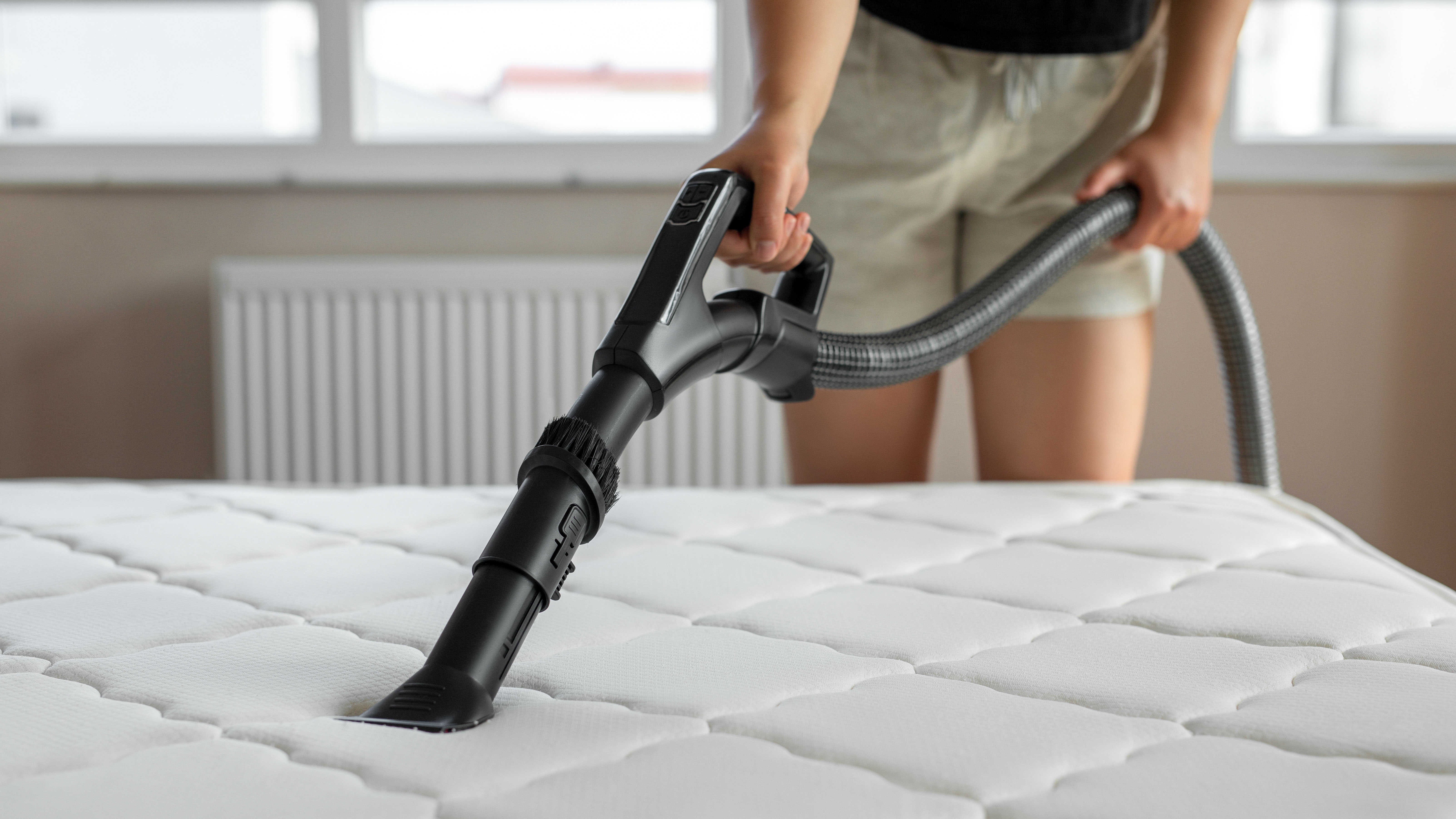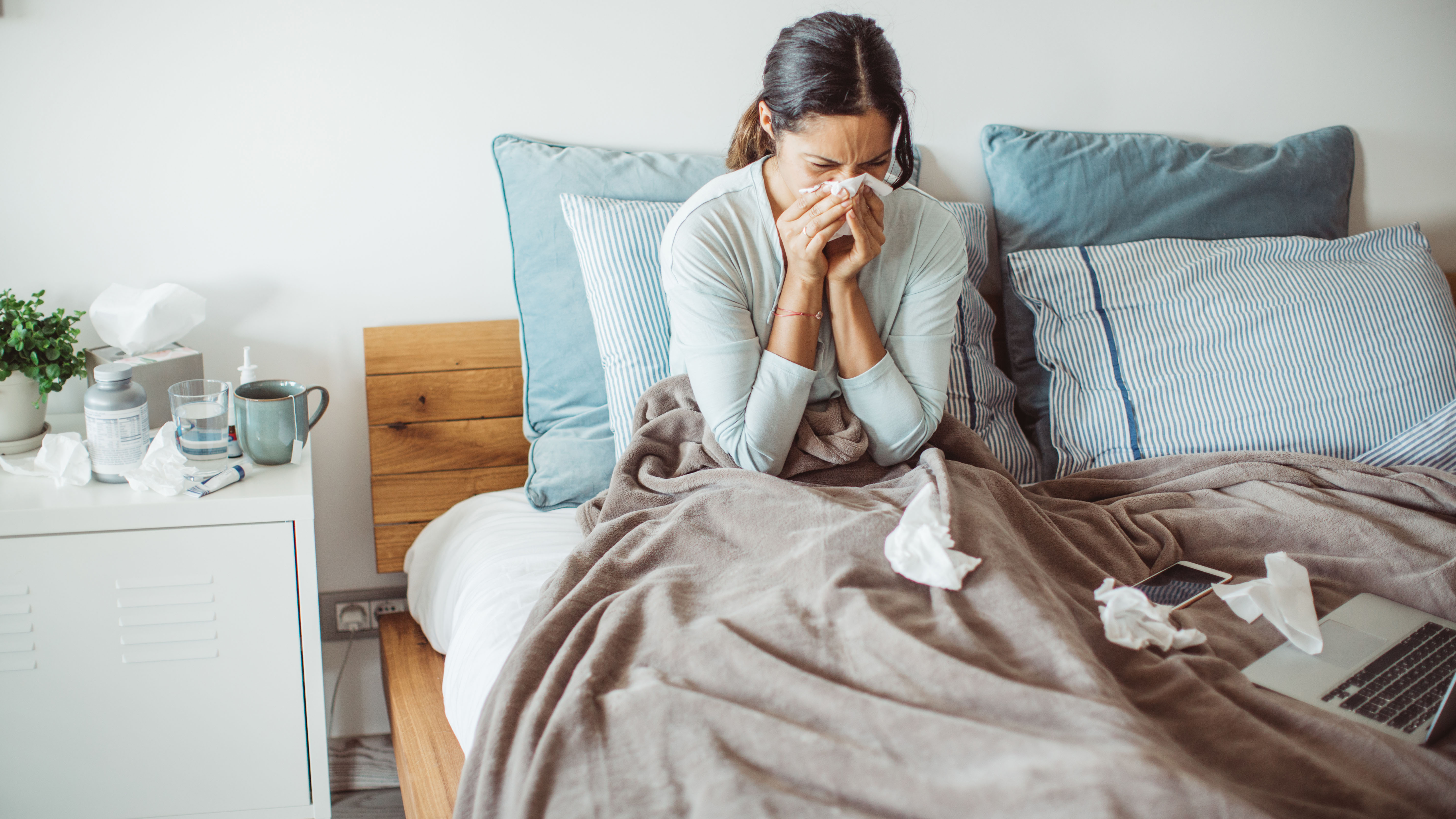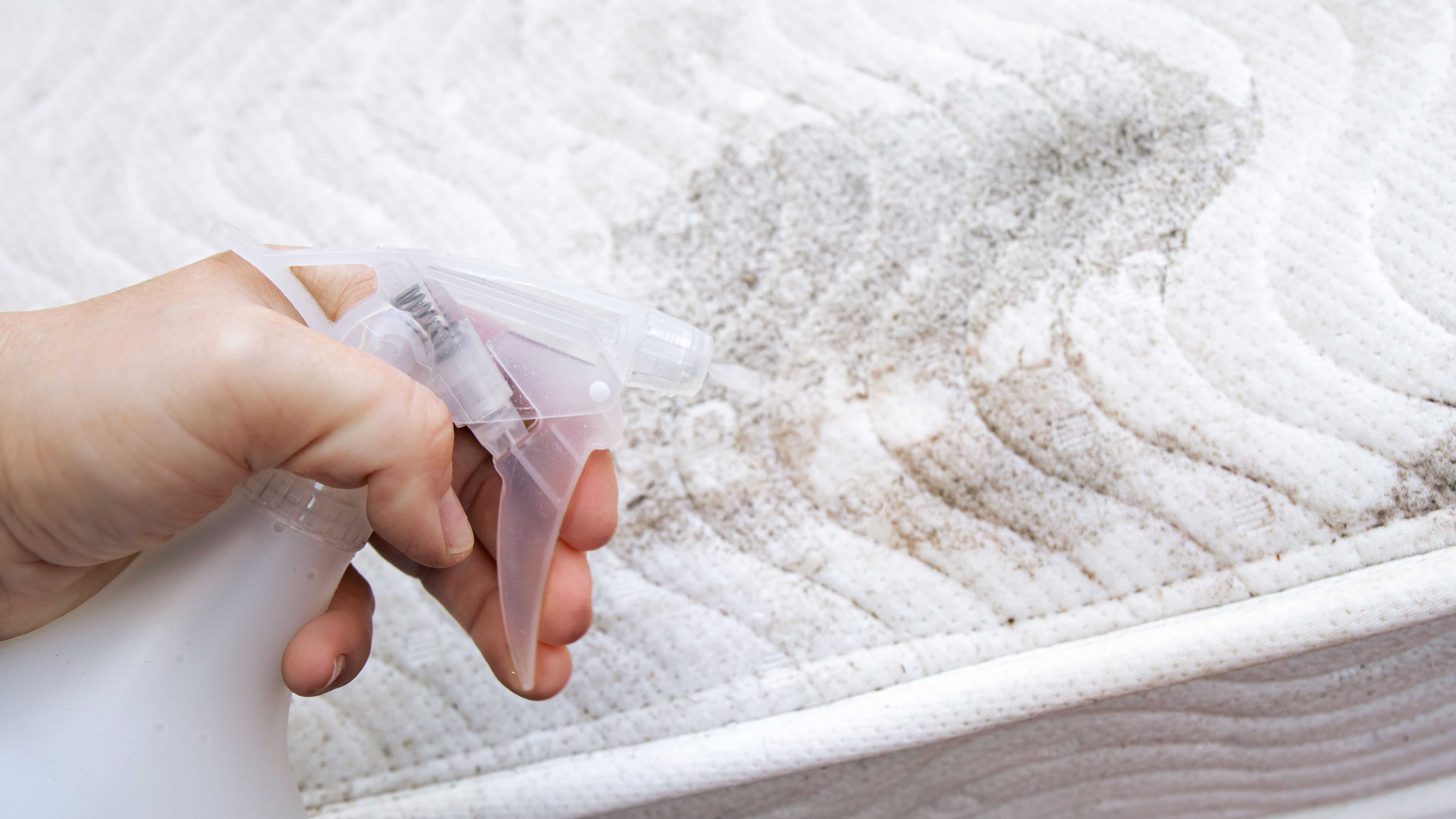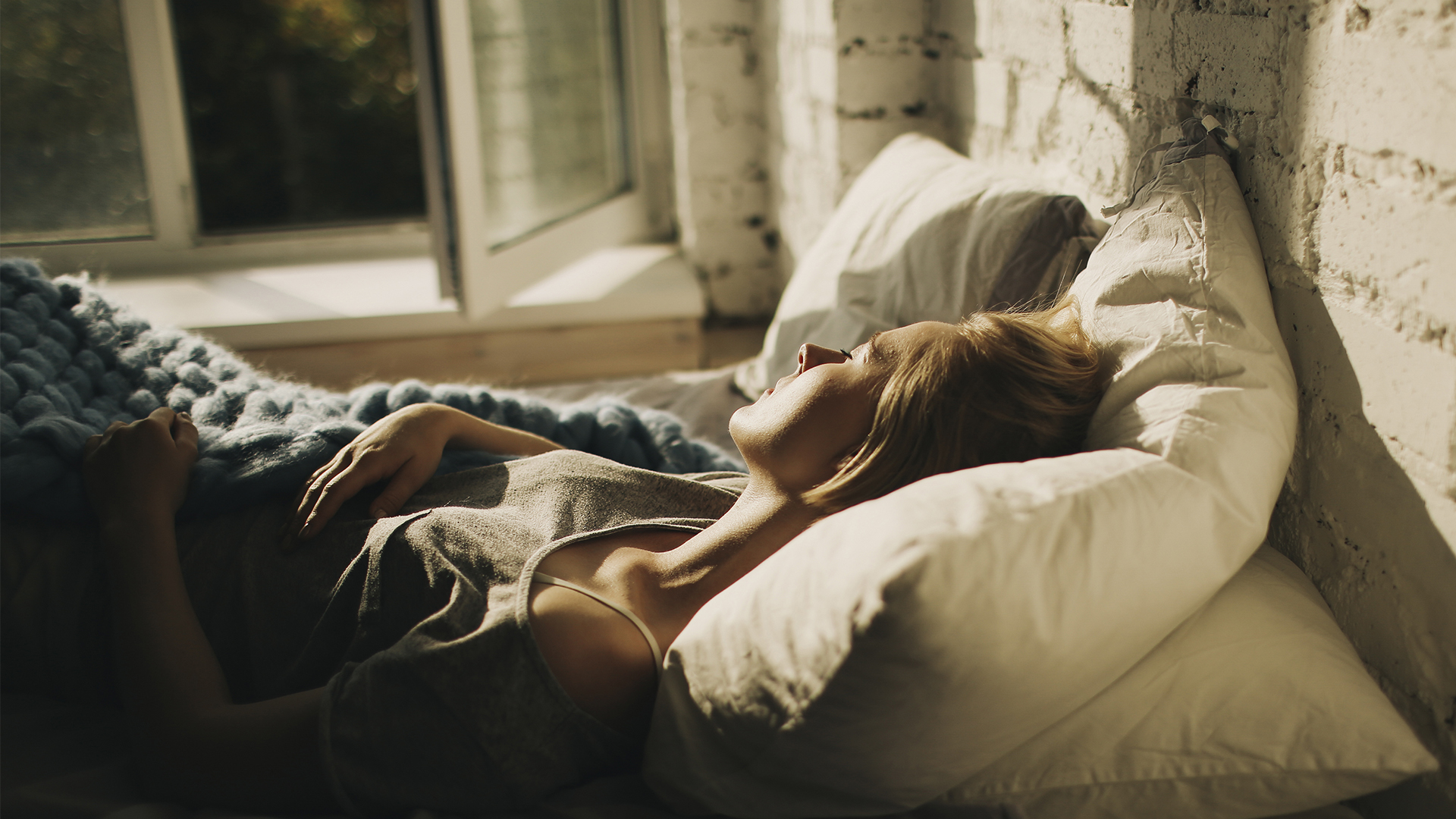The 5 health risks of not cleaning your mattress properly — and how to avoid them
From allergic reactions to bacterial infections, a dirty mattress could be making you unwell — here’s why

Sleep is a hugely important contributing factor to our overall health, and the quality of our mattress underpins the quality of our slumber. Even the best mattresses with the latest in hypoallergenic properties require an occasional deep clean, with experts recommending that you clean your mattress twice a year (more often if your sick).
Not only does sleeping on a clean bed improve our overall sleep hygiene, regular mattress cleaning will prevent it from becoming a breeding ground for bacteria and allergens, which can have serious health consequences. Respiratory issues, allergic reactions and bacterial infections are health conditions that can be born from a buildup of the dead skin cells, saliva and germs that thrive within the dark confines of our mattress.
You might be wondering how to clean your mattress properly, so reading our step-by step guide on how to clean a mattress will be useful. Of course, you may feel that your mattress is beyond cleaning — especially if it’s more than seven years old, which is roughly how often you should aim to replace your mattress.
With the Black Friday mattress sales fast approaching, now is the best time of the year to buy a new mattress, with many brands saving their biggest sale events for now. Whichever position you find yourself in, it’s important to acknowledge that a clean mattress is important for your sleep and general health. Here’s why...
5 health risks of not cleaning your mattress
1. A dirty mattress can cause respiratory issues
Nasal congestion, coughing and wheezing are all symptoms that your respiratory system is struggling against the onslaught of allergens living within your mattress, particularly if you haven’t cleaned it in a while (or ever). Dust mites, bacteria, and pet hair, are all leading causes of indoor air pollution, which can lead to respiratory problems.
While this is bad news for anyone, babies and children are at a greater risk of being affected by the poor indoor air quality caused by a dirty mattress, as their lungs are still developing, as well as those with an existing respiratory disorder, such as asthma.

2. A dirty mattress is a bacterial breeding ground
You should clean your mattress regularly, but particularly after a spate of illness. If you, or anyone you share a bed with, becomes ill, your bed will quickly become a breeding ground for bacteria and germs. You can help stem the spread of germs to other members of your household (and avoid getting ill yourself again) by stripping your bed and thoroughly cleaning your mattress and pillows.
Get instant access to breaking news, the hottest reviews, great deals and helpful tips.
Of course, a dirty mattress may even be why you got ill in the first place. Thoroughly vacuum your mattress and spot clean any grimy areas with bicarbonate of soda and, if possible allow it to air in direct sunlight. The UV from the sun will kill any lingering bacteria and mold spores, but pay attention to the manufacturer's guide if you have a memory foam mattress, as sunlight can be damaging.
3. It can also lead to poor sleep quality
A clean, calm sleep space is integral to creating a healthy sleep environment, which is often referred to as sleep hygiene. A dirty mattress surrounded by a buildup of dust and clutter is not conducive to a good night’s sleep.
And when your sleep quality and quantity is impacted, so is your health. Sleep deprivation can bring a whole host of short and long term health issues, including your concentration, cognitive function and even your cardiovascular health. Keeping your mattress, bedding and surrounding area clean, clutter-free, and cozy will help in your quest to fall asleep faster and stay asleep longer.
4. A dirty mattress can trigger allergic reactions
Sneezing, coughing and a constant runny nose are all indications that you could be allergic to your mattress. Or rather, allergic to what’s growing inside your mattress. Dust mites and pet hair are common allergens that, according to the American Lung Association, can trigger allergic reactions.
As we sleep, we shed dead skin cells that dust mites then feast on. These dust mites, along with their droppings, can cause allergic reactions, which, as well the above, can lead to red, watery eyes, a tightness in the throat and chest. Your throat may also become itchy and irritated. Regularly vacuuming our mattress and its surrounds can help keep dust allergies at bay.

5. Not cleaning a mattress leads to mold exposure
Like dust mites, mold thrives in dark, warm environments. As well as poor ventilation, poor hygiene is a huge contributor to the spread of mold. Drinks and food spillages that are not immediately cleaned up can quickly become moldy, spreading deep within the layers of your mattress. That's why we always recommend buying the best mattress protector you can afford to safeguard against spills, body oils and other moisture.
Exposure to any mold can be harmful to our health, but sleeping on a moldy mattress for eight hours per night can be particularly dangerous — especially for the elderly, immunocompromised, and babies and children. In addition to the common symptoms of an allergy, including a runny nose, coughing and wheezing, mold exposure can cause lethargy, headaches and even memory loss.
How to clean your mattress: Quick tips
Keeping your mattress clean doesn't need to be a huge chore, and can be done with many household items. Start by striping and wash your bedding, thoroughly vacuum your mattress (any vacuum is fine, but one with a HEPA filter is best in the fight against allergens), and spot clean any spills. Follow the steps below every six months will ensure your mattress stays clean...
- Strip the bedding
- Vacuum the top, bottom and sides
- Deodorize with baking soda
- Vacuum off baking soda
- Flip and repeat
- Allow mattress to dry in direct sunlight

Nicola is the Sleep Editor at Tom’s Guide, where she helps steer the mattress and sleep content published on Tom’s Guide, including our Best Mattress for Back Pain buying guide. With a career in journalism spanning the best part of two decades, Nicola brings experience to the team and the knowledge of what makes a great article, whether that’s a how-to mattress cleaning feature, a deep dive into melatonin gummies, or an in-depth mattress review. As a sleep editor, few better understand how important a decent mattress is to the overall quality of our sleep, and precisely how our sleep impacts our physical and mental health. As well as tackling the vast topic of sleep, Nicola joins the raft of expert mattress specialists at Tom’s Guide, who test and compare a wide range of mattresses in order to guide readers towards the very best options on the market.
 Club Benefits
Club Benefits





